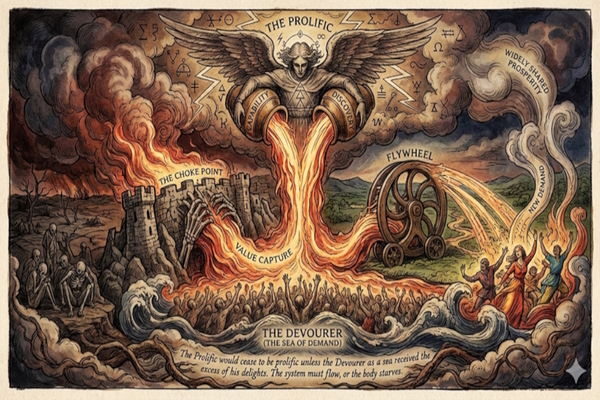Will digital transformation dehumanise HR?

Executive Search and leadership development specialist, Chris Underwood at Adastrum Consulting explains how digital transformation is changing the way HR professionals work.
65% of UK people practitioners report digital transformation is the main driver of internal change (CIPD, 2021). Transformation and technological advancement present two challenges for HR teams.
On the one hand, they are tasked with recruiting and developing the talent needed to support business growth and drive change. After all, investing in technology without investing in the people to land it is a fast route to technical debt!
On the other, HR professionals will digitise their own processes. This is not just a “system upgrade” but transforms fundamental operations, resulting in new ways of working and interacting with the workforce.
How is HR embracing automation?
Data can guide and improve a range of HR processes from payroll and benefits to hiring and performance management.
Automating administrative and repetitive tasks creates efficiencies and improve accuracy, helping the HR team to do more with less resource – which is increasingly important in the challenging post-pandemic recruitment and retention environment.
However, digital adoption and transformation should always be made within the wider objectives of the business – can it generate revenue, scale operations or improve user experience? For recruitment and engagement strategies, employee and candidate experience are the most important measure of success.
Therefore, transformation should focus on enhancing user experience, whether directly through technological upgrades or indirectly, by freeing up professionals’ time to focus on individuals.
Automating recruitment
In light of the talent shortage and skills gaps, it is perhaps unsurprisingly that there is greater adoption of digital tools to support recruitment. Automated messages and mapping tools can make the process more transparent, updating candidates and HR managers on where they are on the journey and helping to provide personalised feedback.
This reassurance prevents individuals from becoming frustrated with the process or following up prematurely; it can also prompt both parties to upload supporting materials or help to schedule interviews.
Software can also help to sift through CVs to create a candidate shortlist, however this only really works when recruiting for entry level or manual roles that require specific qualifications or technical skills. Technology lacks the subtlety to assess softer skills and leadership behaviours gained through important experiences, which are required for higher value management roles.
With so many organisations adopting technology to review applications, candidates are increasingly writing CVs for computer-reading, which highlights keywords but can fail to articulate valuable experiences. It can also disadvantage applicants later in the process, as personal statements that lack finesse and fluency fail to impress interviewers.
Transforming learning and development
68% of UK employers believe there is moderate to extreme AI skills gap (McKinsey, 2021). Organisations cannot rely on simply hiring “heroes” to bridge skills gaps but must prioritise developing talent internally to support retention and career development.
Technology can aid upskilling across organisations, whether it is simply scheduling sessions, delivering virtual training or supporting employees to manage their own career development. Using employee data, surveys and feedback, HR and technology leaders should be able to identify training needs and opportunities for collaboration and mentoring across the organisation to streamline delivery.
Derailing diversity objectives
Traditionally, companies hire in their own image and use the skills and background of the role’s predecessors to build job adverts. However, businesses are working incredibly hard to look beyond the talent pool to recruit and develop people from diverse backgrounds and experiences.
There is a real risk that automation actively works against Diversity, Equality and Inclusion policies. AI is driven by data; its very nature is to introduce bias in order to screen for preferred characteristics and qualifications. It will eliminate worthy candidates who may have gained relevant experience via a career different path.
Automated interviews are increasingly used to save hiring professionals’ time. However, it is detrimental to the interview experience. There is no opportunity to demonstrate personality and, when restricted to a set list of questions, interviewees are unable to go off script and discuss a range of relevant experiences.
Handling human interactions
Technology is unable to show compassion, and in the event of a severe problem, may choose the path of least resistance rather than the route that is in humans’ best interest. The majority of workers are only in contact with HR teams at tense and emotional points in their lives, such as career changes; maternity, sickness and bereavement leave; and disputes.
Current technology is far from sophisticated enough to sensitively handle human interactions. Therefore, organisations must tread a fine line between deploying automation effectively and defining when it is time for humans to step in.
People are still at the heart of organisations and want to feel connected to their employer and valued in their role. Particularly in times of talent shortages, HR teams need to look at how technology can build efficiencies and learning opportunities without replacing the important human connections.
Chris Underwood is Managing Director at Adastrum Consulting
Main image courtesy of iStockPhoto.com

Business Reporter Team
Most Viewed
Winston House, 3rd Floor, Units 306-309, 2-4 Dollis Park, London, N3 1HF
23-29 Hendon Lane, London, N3 1RT
020 8349 4363
© 2025, Lyonsdown Limited. Business Reporter® is a registered trademark of Lyonsdown Ltd. VAT registration number: 830519543





